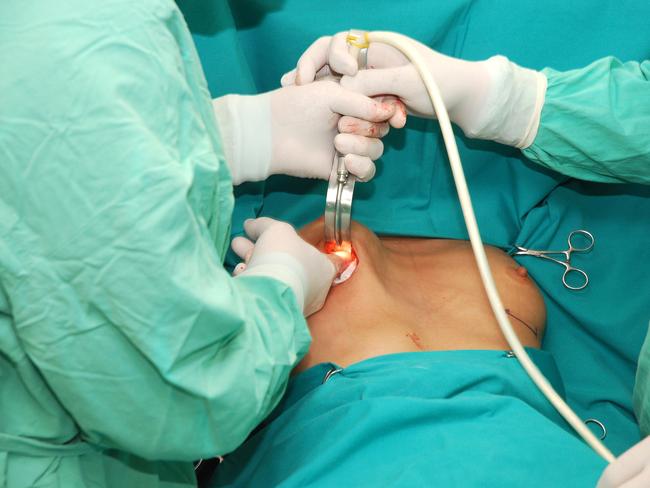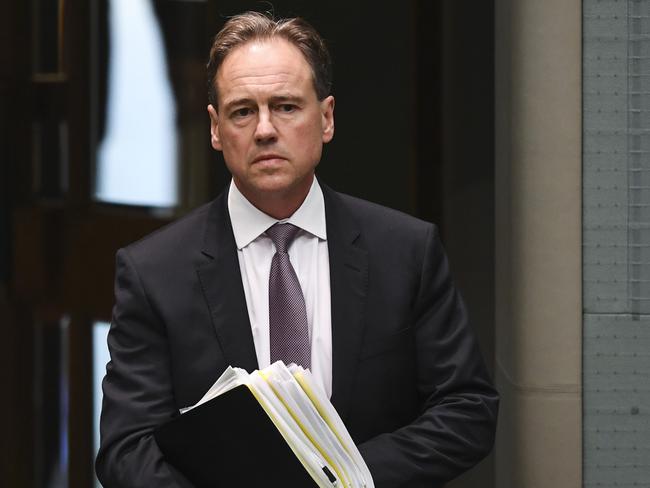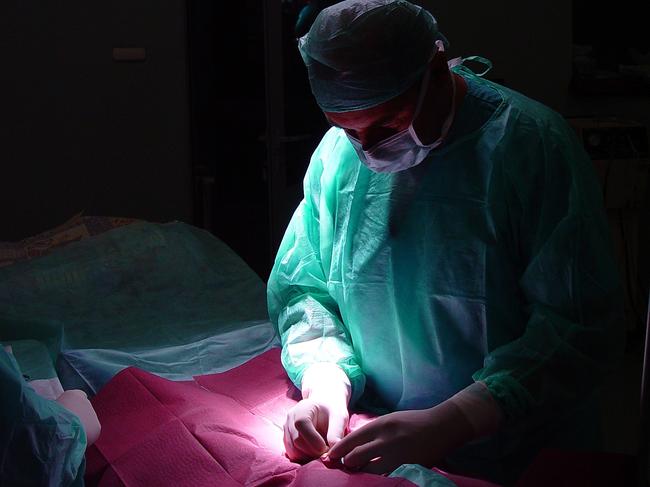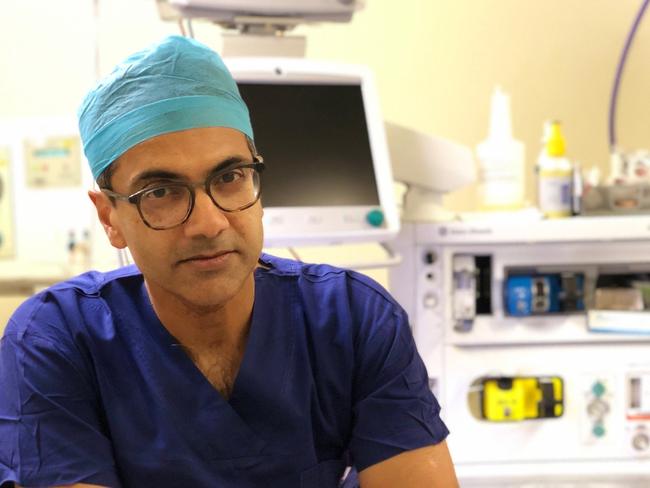Breast implant surgeons paid by medical device companies
MANUFACTURERS of breast implants linked to a rare cancer are splashing jaw-dropping sums on surgeons each year, raising concerns the hefty payments could compromise the advice they provide.
Illness
Don't miss out on the headlines from Illness. Followed categories will be added to My News.
EXCLUSIVE
The manufacturers of breast implants linked to a rare cancer are paying surgeons more than $140 million dollars in royalties, speaking, research and consultancy fees each year.
The payments could compromise the advice doctors provide patients about the safest implant options.
Pharmaceutical companies that pay doctors in Australia are required to report on a public register every six months on how much they pay individual doctors.
News Corp Australia wants the same disclosure from medical device companies.
MORE: High risk breast implants identified as cancer cases surge
MORE: Breast cancer surge linked to cut-price rough-surface implants
MORE: Cheap breast implant surgery in Asia and Mexico linked to cancer
MORE: Cancer-causing breast implant makers to cover removal costs

Health Minister Greg Hunt is backing our call and has asked the Chief Medical Officer, Professor Brendan Murphy to investigate the issue.
It comes as women affected by the cancer begin talks with lawyers about a possible class action that could deliver them compensation.
More than 72 Australian women have contracted a rare cancer linked to breast implants and 3 have died, doctors fear a tsunami of new cases in coming years with 40,000 women a year now having implants inserted.

Picture: AAP
Women fitted with Allergan’s Biocell implant have a 16.5 times greater risk of developing a rare cancer, research by Professor Anand Deva shows.
Those women with the rough textured Silimed implant (now withdrawn from the market) have a 23.4 times higher risk of cancer.
An investigation by News Corp has found both these manufacturers and others have a history of making substantial payments to doctors.
And Allergan is currently funding a global research effort by multiple doctors in Australia and the US into the rare cancer linked to breast implants.
So called Sunshine laws in the US require medical device companies to report on how much they pay individual doctors and the data base shows Allergan paid US doctors over $148 million in speaking, research and consultancy fees 2016.
One US plastic surgeon specialising in breast implants Dr Patrick Maxwell, received $4.6 million in royalties from the company in 2016.
Sientra which sold the higher risk Silimed breast implant paid US doctors almost $390,000 and Mentor another breast implant manufacturer paid doctors over $1.49 million.

Allergan told News Corp it does make payments to Australian doctors but did not reveal how much or name the doctors receiving the payments.
The scientific exchange between health care manufacturers and health care providers is essential to the advancement of medicine and quality patient care, it says.
“We only pay for reasonable, necessary services, such as expert consultancy,” said the company which insists all payments it makes are in line with local regulations regarding engaging healthcare professionals.
Silimed did not respond to News Corps’ inquiries.
Prominent Australian doctors who have received money from medical device companies back the public disclosure.
Breast implant surgeon Dr Daniel Fleming says he was a paid consultant for Silimed Corporation until 2015, and expects his travel costs for a recent trip to a Stockhlom medical conference to be reimbursed by breast implant manufacturer Polytech.
Professor Anand Deva whose research has revealed the risk of the cancer has declared he is a consultant for medical devices manufacturers Johnson and Johnson, KCI, Allergan Motiva and Sientra and some of the money goes to research institutions.

He gets paid between $10,000-$15,000 a year in education and consultancy fees and charges $400-$500 an hour for his services and supports a register of payments to doctors.
Dr Mark Magnusson the President of Australasian Society of Aesthetic Plastic Surgeons who is a paid adviser to Allergan and has been funded to speak at a medical meeting by Mentor. He supports public disclosure. He says he no longer uses Allergan’s Biocell implant.
A spokeswoman for the President of the Australian Society of Plastic Surgeons Professor Mark Ashton said the society is reviewing its code of conduct and supports public disclosure.
The Medical Technology Association of Australia representing device companies refused to commit to setting up a disclosure register.
It say its members abide by a code of practice to promote that ensures healthcare providers are not influenced by financial or other inducements to providers and noncompliance can result in fines.
Originally published as Breast implant surgeons paid by medical device companies


